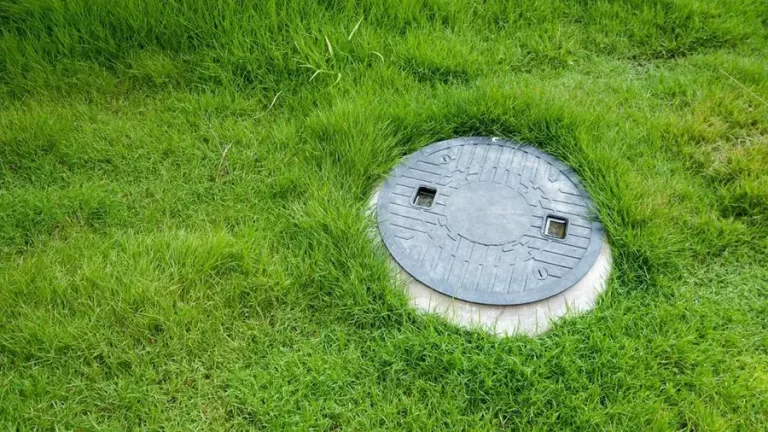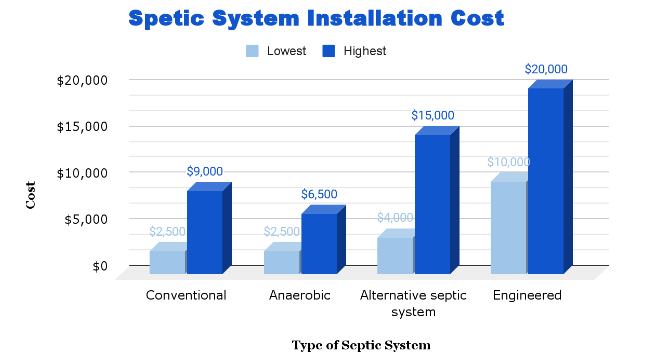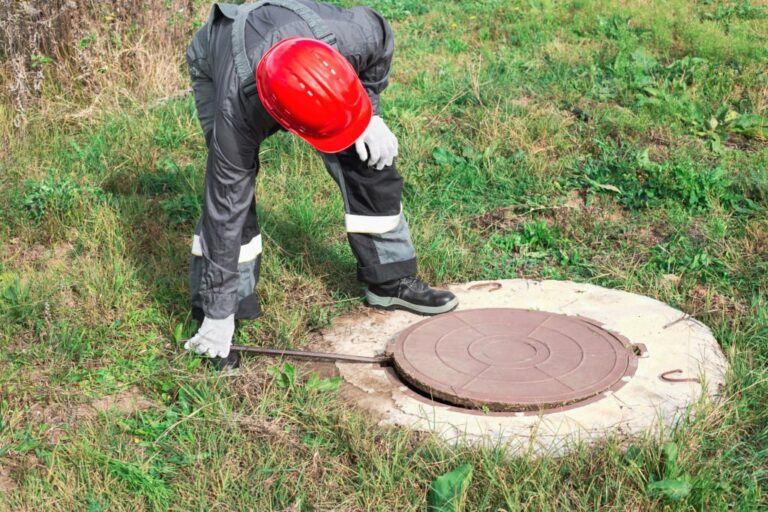Are you a homeowner tired of issues with the city sewerage system? Or are you shifting to a far-off area with no sewerage network present? Then, you must be considering putting in a septic system.
It may cost you anywhere from $3,600 to $10,000 with an average septic tank installation cost of $6,300. High-end special systems can cost up to $20,000, however they are less popular for most homeowners. If properly taken care of, septic tanks can have a lifespan of over 30 years.
Not only does septic tanks resolve a major problem by disposing waste water safely for homeowners who are unable to connect to public sewer lines. But, also compared to sewage treatment, it is a more eco-friendly waste disposal method.
Let’s dive in detail and find out how much does a new septic system cost in 2024?

Septic Tank Installation Cost
There are a few more costs and stages involved in installing a septic tank. Consider the following additional possible expenses when creating your budget.
Percolation Test
The percolation test is a necessary step that normally costs between $450 and $1,400. Also referred to as a “perc test,” the percolation test examines the drainage and soil conditions surrounding the planned location of the septic system.
In the most unfavorable situation, the site might be declared unsuitable for septic tanks due to the low percolation rate of the soil. Unfortunately, you’ll have to go with alternatives of a septic system in this case. That’s what makes this test a necessary step in the beginning.
Land Survey
Make sure the best licensed and insured professional from your vicinity does a land survey before installing a septic tank. In the event that your installation is mistakenly going to be outside of your property borders, the surveyor will make sure the intended site is indeed on your land.
Thus sparing you from a significant and costly legal nightmare later on. While costs differ depending on the location and size of the property, on average, they range from $330 at low end to $900 at the high end.
Permits
As part of the land improvement it’s important to get a permit from your local government prior to installing a septic system. Although, the cost depends on so many factors and government’s ruling and regulations, on an average it roughly costs between $320 and $1,880.
(Note: Keep that in your mind that you may need to get a new permit.)
Tank Size
Smaller, let’s say one-bedroom homes with less sewage disposal will need 500-gallon tanks that cost around $750 on an average. Whereas, larger homes will need a larger tank of about 1000-gallon that usually costs $1,400 and more.
Labor
Installing a septic system is no walk in the park. So, if you’re planning to DIY, please don’t. And with that comes often the most expensive part of septic installation, the labor itself. The average cost to install septic system lies between $1,400 to $4,100.
(Here’s the catch: Due to this reason it is often expensive to repair a septic tank rather than installing a new one. Replacement includes removal, ground repair and installation.)
| Average septic tank installation cost | |
| Highest Cost | $10,000 |
| Average Cost | $6,300 |
| Lowest Cost | $3,600 |
Cost to Install Septic System According to the System Type
The type of system in place has a major impact on the cost of a septic system. Anaerobic or conventional systems, which can cost as little as $2,500, are frequently appropriate for single-family houses. Complexly designed systems can run up to $20,000 on the high end.
Septic systems fall in four main categories. Here’s how their costs compare to each other:

Other Costs You Should Consider
Septic system installation is an extremely physically demanding task. Because of this, labor expenses frequently make up between 50% and 70% of the project’s overall cost. You can anticipate higher labor costs the more complex the system is.
Additionally, permit requirements and local laws can also differ greatly. When creating a budget for your septic system, make sure to review the criteria to ensure that you fully comprehend these costs.
Factors that Affect the Average Septic System Cost
Both the initial cost and the long-term durability of the septic tank are influenced by the material that makes it. Because more work is required to dismantle and dispose of the old system, replacing a septic system is typically more expensive than installing one in the first place.
Material | Cost (labor not included) |
Concrete | $750 – $1,700 |
Fiberglass | $1,450 – 2,000 |
Plastic or Poly | $700 – $2,500 |
Typically, the cost of the project will be lower the smaller the septic tank. Septic tanks with a capacity of 500 to 1,000 gallons are usually adequate for single-family houses, but bigger systems can be needed for commercial buildings.
Size | Cost (labor not included) |
500 Gallons | $750+ |
1,000 Gallons | $1,250+ |
1,500 Gallons | $1,800+ |
How Do You Know that You Need a New Septic Tank?
The essential components of septic systems that handle the treatment and disposal of your home’s wastewater are septic tanks. Septic tanks can corrode or lose their efficiency with time; in these situations, you should think about replacing or repairing your septic tank. The following are typical indicators that a new septic tank could be necessary:

Age and condition: Depending on how well it’s maintained, a septic tank can last anywhere from 20 to 40 years. It’s a good idea to think about replacing your tank if its anticipated lifespan is coming to an end or if it has already passed.
(Tip: The United Environmental Protection Agency suggests getting your septic system inspected and pumped every 3 to 5 years.)
Regular clogs or backups: A failing septic tank may be the cause of persistent toilet clogs, slow drains, or sewage backups. This could be the result of a blocked drainage field or a failing tank.
Pooled water in the lawn: Soggy patches or standing water in your yard close to the drain field or septic tank are a serious indication of a system breakdown.
Deterioration or structural damage: The septic tank may need to be replaced if there are noticeable fractures, corrosion, or structural damage. For effective wastewater treatment and leak prevention, tank integrity is essential.
Tips to Save Money While Installing Septic Tank in 2024
Although installing a septic tank can be expensive, there are a few strategies to cut costs without sacrificing the performance of the system. The following advice will assist you in lowering the cost of installing a septic tank in 2024:
Compliance for local laws: Make sure that the installation of your septic system abides by local laws and ordinances. The consequences for noncompliance can include costly fines and mandatory adjustments.
Timing strategy: Try to arrange installation during the off-season, when contractors are more likely to be available or offer discounts.
Landscape removal: You may be able to do some activities yourself, such as site preparation, landscaping, and backfilling, depending on your abilities and local laws. However, to guarantee compliance and safety, seek professional advice.
Acquiring materials: You can buy the supplies, such as gravel and other parts that your installer mentioned, that you need to start your septic system on your own. To avoid spending additional costs or postponing your installation, make sure you get a sufficient quantity of each material.
Regular care: Make a commitment to giving your septic system regular attention. Its lifespan can be increased and the need for expensive repairs or early replacements can be decreased with proper care.
DIY vs. Hiring a Professional
Unless you’ve experience in the field, it’s wise to leave it to the professionals. It’ll save you from unexpected failures and costs in the long run.
To avoid potential costly mistakes by doing it yourself, you can always leave your septic system problems to us. Call at 860-949-0108 or click here to schedule your appointment now!


